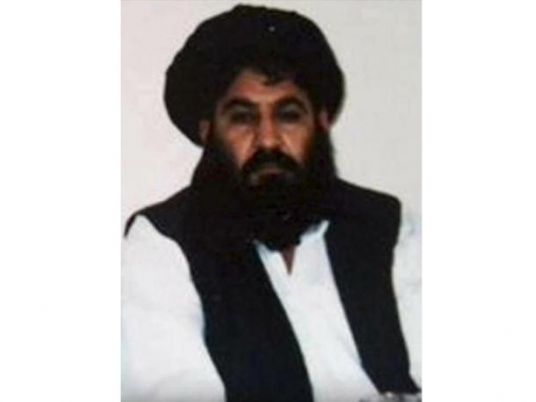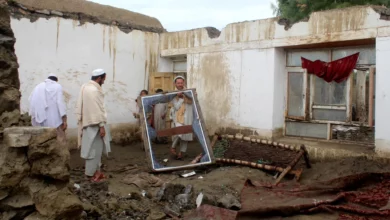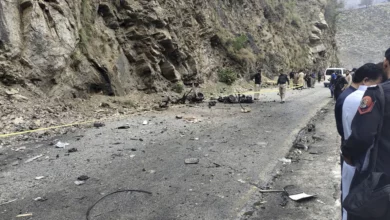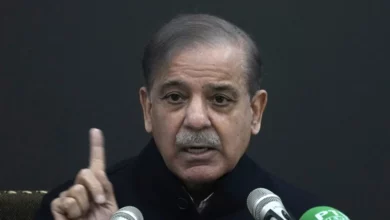
The United States carried out an air strike on the leader of the Afghan Taliban, probably killing him in a remote area just inside the Pakistan border in an operation likely to sink any immediate prospect for peace talks.
If confirmed, the death of Mullah Akhtar Mansour may open up a battle for succession and deepen fractures that emerged in the insurgent movement after the death of its founder Mullah Mohammad Omar was confirmed last year, more than two years after he died.
Saturday's mission, which U.S. officials said was authorized by President Barack Obama and included multiple drones, showed the United States was prepared to go after the Taliban leadership in Pakistan, which the Western-backed government in Kabul has repeatedly accused of sheltering the insurgents.
It also underscored the belief among U.S. commanders that under Mansour's leadership, the Taliban have grown increasingly close to militant groups like al-Qaeda, posing a direct threat to U.S. security.
Pentagon spokesman Peter Cook confirmed a strike targeting Mansour near the Afghanistan-Pakistan border region but declined to speculate on his fate.
"We are still assessing the results of the strike and will provide more information as it becomes available," Cook said.
The Taliban have made no official statement but two commanders close to Mansour denied he was dead.
Nevertheless, attention has focused on Mansour's deputy, Sirajuddin Haqqani, leader of a notorious network blamed for most of the recent high profile suicide attacks in Kabul.
"Based purely on matters of hierarchy, he would be the favorite to succeed Mansour," said Michael Kugelman, an analyst at the Woodrow Wilson Institute, a Washington-based think tank.
"But when it comes to the Taliban, nothing is clear cut and meritocracy is never the norm," he said.
Haqqani, appointed as number two after Mansour assumed control of the Taliban leadership last year, has generally been seen as an opponent of negotiations and if he does take over, prospects of negotiations are likely to recede further.
Efforts to broker a new series of talks between the Afghan government and the Taliban had already stalled following a suicide attack in Kabul last month that killed 64 people and prompted President Ashraf Ghani to prioritize military operations over negotiations.
Unanswered questions
The Afghan government said it had been informed by Washington of the drone strike and Mansour's probable killing.
Ghani's office said if his death was confirmed, Taliban who wanted to end bloodshed should return from "alien soil" and join peace efforts.
The U.S. drones targeted Mansour and another combatant as they rode in a vehicle in a remote area of Pakistan's Baluchistan province, southwest of the town of Ahmad Wal, another U.S. official said, speaking on condition of anonymity.
Residents of the area close to the Afghan border, said some people had heard a blast but the cause was not clear.
The strike by U.S. special operations forces operating the drones took place at about 6 a.m. EDT (1000 GMT), the U.S. official said. That would have been 3 p.m. on Saturday in Pakistan.
The Pakistani military did not respond to requests for comment but an intelligence official who declined be identified said there had been a strike in the area but he did not know the target and it happened on the Afghan side of the border.
Cook called Mansour "an obstacle to peace and reconciliation between the government of Afghanistan and the Taliban" and said he was involved in planning attacks that threatened U.S. and Afghan forces.
One of the Taliban commanders who dismissed the report of Mansour's killing said it had nevertheless spread alarm through Taliban ranks.
"This rumor has created panic among our followers across Afghanistan and Pakistan and they are anxiously waiting to hear the truth. We're telling them to ignore it but they're still worried," the senor Taliban member said by telephone.
In December, Mansour was reportedly wounded and possibly killed in a shootout at the house of an insurgent leader near Quetta in Pakistan. The Taliban eventually released an audio recording, purportedly from Mansour, to dispel the reports.
A U.S. intelligence analyst said Mansour had been in a power struggle with Mullah Mohammad Rasoul, whose deputy, Mullah Dadullah, was killed late last year in what officials think was a fight with Mansour's more hard-line faction.
But the U.S. official cautioned against concluding that the shakeup might diminish the Taliban's broader sense of strength.
"The Taliban have made considerable progress in Helmand [province] and elsewhere so it's hard to see much incentive for them to start compromising now, with the fighting just heating up again," the official said.
The new U.S. commander in Afghanistan is reviewing U.S. strategy, including whether broader powers are needed to target insurgents and whether to proceed with plans to reduce the number of U.S. forces.




